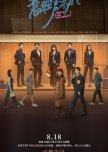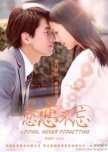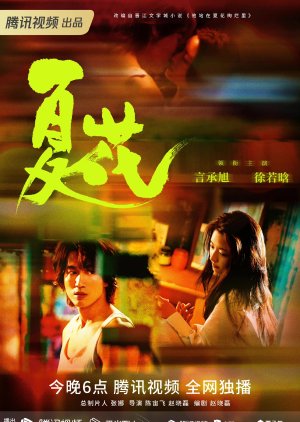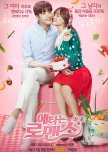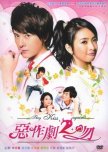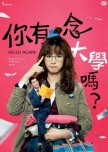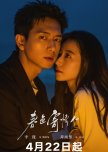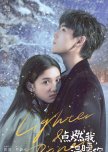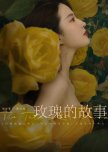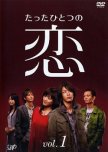
If you liked TFF maybe you also like Tatta Hitotsu no Koi. A japanese drama with similar themes, a rich girl, full of attitude, chasing the "ordinary" and hardworking guy she falls in love with. But she hides a secret from him. Many similarities, a very beautiful drama too.

There's a similarity I'm premise — the female lead is wealthy and sheltered, due to serious illness in her teenage years she's on the cusp of adulthood having never truly lived. She falls for a working class man and a quietly melodramatic romance (by which I mean the storyline is melo but neither the tone nor plot is over-the-top) ensues. The Forbidden Flower focuses less on the class difference and adds the additional element of a large age gap, with a middle-aged male lead.
In terms of atmosphere, there are some similarities and some differences. Both have moments of unrestrained youthfulness but also of moodiness and emotional poignancy. Tatta Hitotsu no Koi is more consistently bittersweet and melancholic in tone, while The Forbidden Flower has some unfortunate tangents into more typical contemporary C-drama romance territory with the secondary and supporting characters. It also has a sultry aspect that focuses on the physical attraction between the leads that Tatta Hitotsu no Koi lacks. I felt they had some kinship between these drama in visual language as well — waterfront scenery and vibrant sunsets, though The Forbidden Flower leans more into the vivid colors and Tatta Hitotsu no Koi is more urban.
In terms of atmosphere, there are some similarities and some differences. Both have moments of unrestrained youthfulness but also of moodiness and emotional poignancy. Tatta Hitotsu no Koi is more consistently bittersweet and melancholic in tone, while The Forbidden Flower has some unfortunate tangents into more typical contemporary C-drama romance territory with the secondary and supporting characters. It also has a sultry aspect that focuses on the physical attraction between the leads that Tatta Hitotsu no Koi lacks. I felt they had some kinship between these drama in visual language as well — waterfront scenery and vibrant sunsets, though The Forbidden Flower leans more into the vivid colors and Tatta Hitotsu no Koi is more urban.
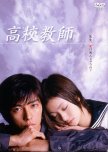
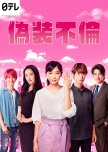
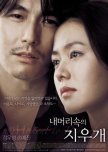

First of all, let me tell you, there is nothing similar between these two, but no matter how many times I watch it, it always takes me here, maybe because of the ugly cry I had in these two series, these two series. Also, I want to tell you guys to understand these two dramas you have to pay attention you can't be biased because of the romantic scene The Forbidden Flower has.
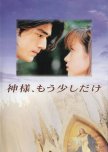
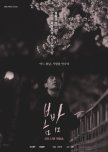
Both dramas deal around the romance story between a girl and a guy where the guy is not seen as ideal for her. Both dramas are very ascetic and have wonderful background music. Both have a lot of romantic couple moments. Generally they give of the same vibe. The only difference is that there is no age gap between the couples and while in "forbidden flower" the female lead is uprising the male lead, in "one spring night" it is the male lead that is pursuing the female lead
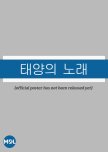
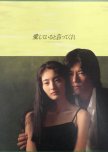
The dynamic between the couple in The Forbidden Flower reminded me of the couple in Aishiteiru to Ittekure. In both dramas a youthful female lead with an outgoing, vibrant personality quickly falls for and pursues an older man with a quieter more reserved presence (in Aishiteiru to Ittekure the male lead doesn't speak because he's deaf; in The Forbidden Flower he's just a more introverted personality and man of few words). Both dramas stood out to me for the how natural the actors felt together, especially something about the physicality of their interactions. The storylines aren't particularly similar; The Forbidden Flower is more melo (and has an unfortunate sideplot that interrupts the main storyline) while Aishiteiru to Ittekure is quite uneventful through much of the drama (can border in boring); but both have mostly mellow, down-to-earth atmosphere.
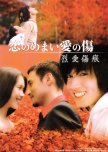
Both of these dramas are including the same male lead who is showing the same affection and performance.
It is based on the opposite concept for the male lead of being the younger in the old drama and the old in the newest one.
But though it is been 21 years difference between the both, where they embody the same characters of male lead in my opinion with same romantic genre story.
What is the common I think is that the relationship between the leads is not lasting for long time at the end of story and painstinkly resisting to not be separated.
It is based on the opposite concept for the male lead of being the younger in the old drama and the old in the newest one.
But though it is been 21 years difference between the both, where they embody the same characters of male lead in my opinion with same romantic genre story.
What is the common I think is that the relationship between the leads is not lasting for long time at the end of story and painstinkly resisting to not be separated.

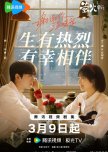
Similarities:
-Both have leads with a terminal illness.
-Both have leads going through struggles because of that and coming to terms with it.
-Both sets realize that only by being truly together with support can they live each day to the fullest, regardless how short that time is.
-Both are melodramas.
-Both have leads with a terminal illness.
-Both have leads going through struggles because of that and coming to terms with it.
-Both sets realize that only by being truly together with support can they live each day to the fullest, regardless how short that time is.
-Both are melodramas.
